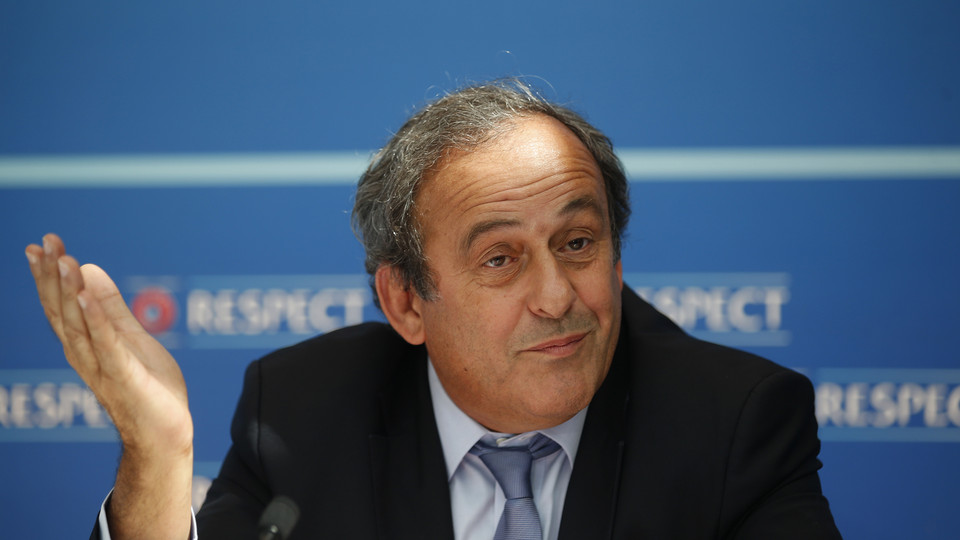UEFA will elect a new president on 14 September, following Michel Platini’s resignation this month.
Former FIFA candidate Michael van Praag was the first to declare plans to replace Michel Platini in a contest likely to have several contenders.
The Frenchman, 60, quit on 9 May after failing to overturn his ban from all football activities.
The former France captain and three-time Ballon d’Or winner was found guilty of ethics breaches over a 2m Swiss Franc (£1.3m) payment he received from FIFA. UEFA has been without a president since then.
Platini was initially banned for six years but had the punishment cut to four years.
The new president will complete Platini’s existing term, which runs through March 2019, and become a FIFA vice president.
UEFA interim secretary general Theodore Theodoridis said the 55 national federations would vote at an extraordinary congress in Athens, Greece.
Van Praag, the Dutch soccer leader, “expressed his intention” to enter the contest during an executive committee meeting Wednesday, Theodoridis said.
The 67-year-old Van Praag was expected to seek the job after raising his profile in 2014 as a leading European critic of Sepp Blatter, and as a candidate against the then-FIFA president last year.
The former Ajax president, who withdrew from that FIFA contest ahead of the vote last May, has declined to speak with reporters in Basel this week on the sidelines of the Europa League final.
Other possible contenders in the race include UEFA and FIFA vice president Angel Maria Villar of Spain and Slovenian federation president Aleksander Ceferin.
Greek official Theodoridis also acknowledged he might be a contender by the July 20 deadline.
“In my life I learned never to say never, but it is not my priority and there are plenty of people there,” said the, who was promoted to the role of his former boss Gianni Infantino.
Infantino, now the FIFA president, used the UEFA general secretary job to rise to higher office in February.
The UEFA race is expected to take shape during the June 10-July 10 European Championship in France.
Theodoridis said the UEFA ruling committee declined an option to call a post-Euro 2016 election in July, wanting to give entrants time to prepare a program.
“It is not always easy to have a proper (campaign), especially if you have a lot of candidates,” he said.
UEFA has been without a president since Platini was suspended by the FIFA ethics committee in October for accepting a $2 million payment approved by Blatter in 2011. The Court of Arbitration for Sport imposed a reduced four-year ban on Platini this month.
With Platini barred from official duty, Villar will present the trophy at competition finals as UEFA’s senior vice president, Theodoridis said.
